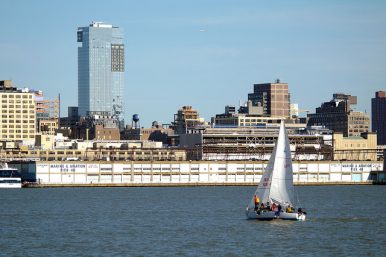 A Financial Times investigation picks through the murky path from the former mayor of Almaty to Trump Soho.
A Financial Times investigation picks through the murky path from the former mayor of Almaty to Trump Soho.
There is a lot to unpack from the Financial Times’ investigation, which broke today linking a piece of U.S. Republican presidential nominee Donald Trump’s extensive business empire to an alleged money laundering scheme run by the family of an exiled Kazakh oligarch.
As with many such cases some parts are legal but unsavory, some legal but expose hypocrisy, and other parts entirely illegal, but shadowed in layers of financial details, legal loopholes, and politics.
Here’s the short version from FT (and the long version is here):
A Financial Times investigation has found evidence that one Trump venture has multiple ties to an alleged international money laundering network. Title deeds, bank records and correspondence show that a Kazakh family accused of laundering hundreds of millions of stolen dollars bought luxury apartments in a Manhattan tower part-owned by Mr Trump and embarked on major business ventures with one of the tycoon’s partners.
Putting aside the shadowy finances of Trump for a moment, one aspect worth exploring is that the Kazakh in question, Viktor Khrapunov, says his fortune is from legitimate business successes and that he is being targeted by the Kazakh government for opposing President Nursultan Nazarbayev.
Khrapunov was mayor of Almaty, Kazakhstan’s former capital and largest city, from 1997 to 2004. He’d served a term as energy minister before that and moved on to a governorship after. In 2007, he was appointed to a minister post again (emergency measures), but retired that year. In 2011, Kazakh authorities charged him with abuse of power — relating to construction and real estate schemes during his time as mayor of Almaty — but he’d already moved out of the country several years before.
Both Viktor, and his son Ilyas, are presently listed on the Interpol wanted persons database — at the behest of Kazakh authorities.
It is entirely possible that Khrapunov abused his power as mayor for personal gain and then washed dirty money via a set of Manhattan luxury real estate purchases and is also being targeted by the government. Astana has used U.S. courts to try and take down political opponents and opposition media enterprises. Its efforts have also strayed into cyberattacks and kidnappings.
Kazakhstan seems to have no shortage of elite-level corruption and while the government has been pushing an anticorruption campaign, at times it blends with political expediency a bit too well. Nazarbayev all but ignored the Panama Papers revelations about his nephew’s use of offshore companies to buy a yacht. To be clear, the usage of offshore companies is not by default illegal, but the practice can be used to conceal illegal dealings and nonetheless helps shadow the immense wealth flowing among the powerful. Only the corrupt who have also irritated or posed a challenge to Nazarbayev’s regime find themselves on the bad end of the law.
Back to Trump’s side of this matter for a moment. Trump’s involvement in the building in question — Trump Soho — was mostly the licensing of his name by the two other development partners: the Sapir Organisation and Bayrock. Sapir was founded by a Georgian and Bayrock a Kazakh-born former Soviet official.
As reported by the FT, Trump said in a 2011 deposition — relating to a dispute over a Fort Lauderdale real estate project with Bayrock — that he had “never really understood who owned Bayrock.”
The FT investigation does not necessarily allege any illegal action on Trump’s part, but not knowing who your business partners are certainly reflects poorly on Trump’s judgement. The FT also found that two alumni from the Trump-Bayrock partnership — one of which is “a Russian-born convicted fraudster and FBI informant with mob connections” — subsequently worked with or for the Trump Organization more formally. For a candidate whose Russian connections have been heavily scrutinized, this is just another brick on that road.
The Diplomat, 20.10.2016




